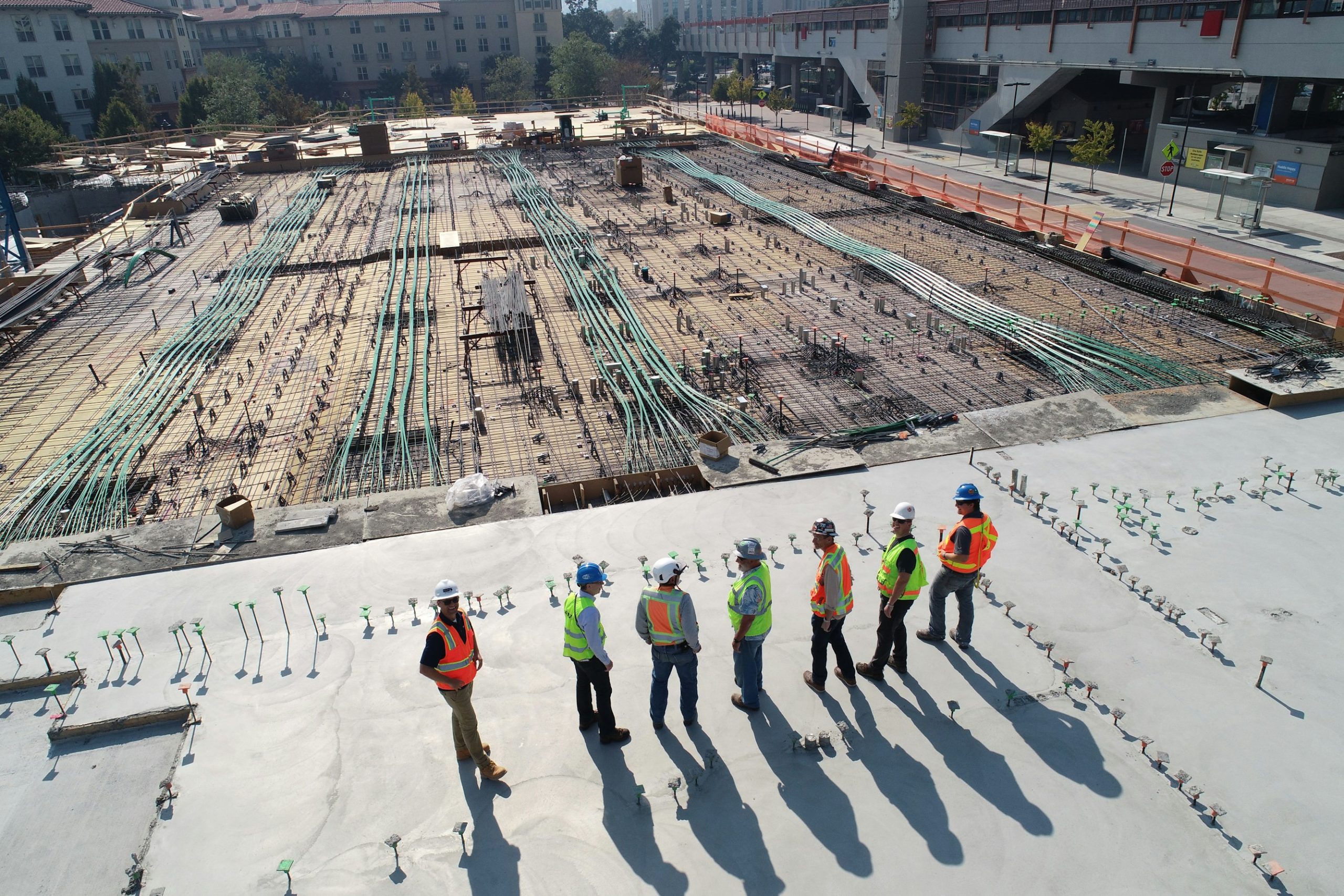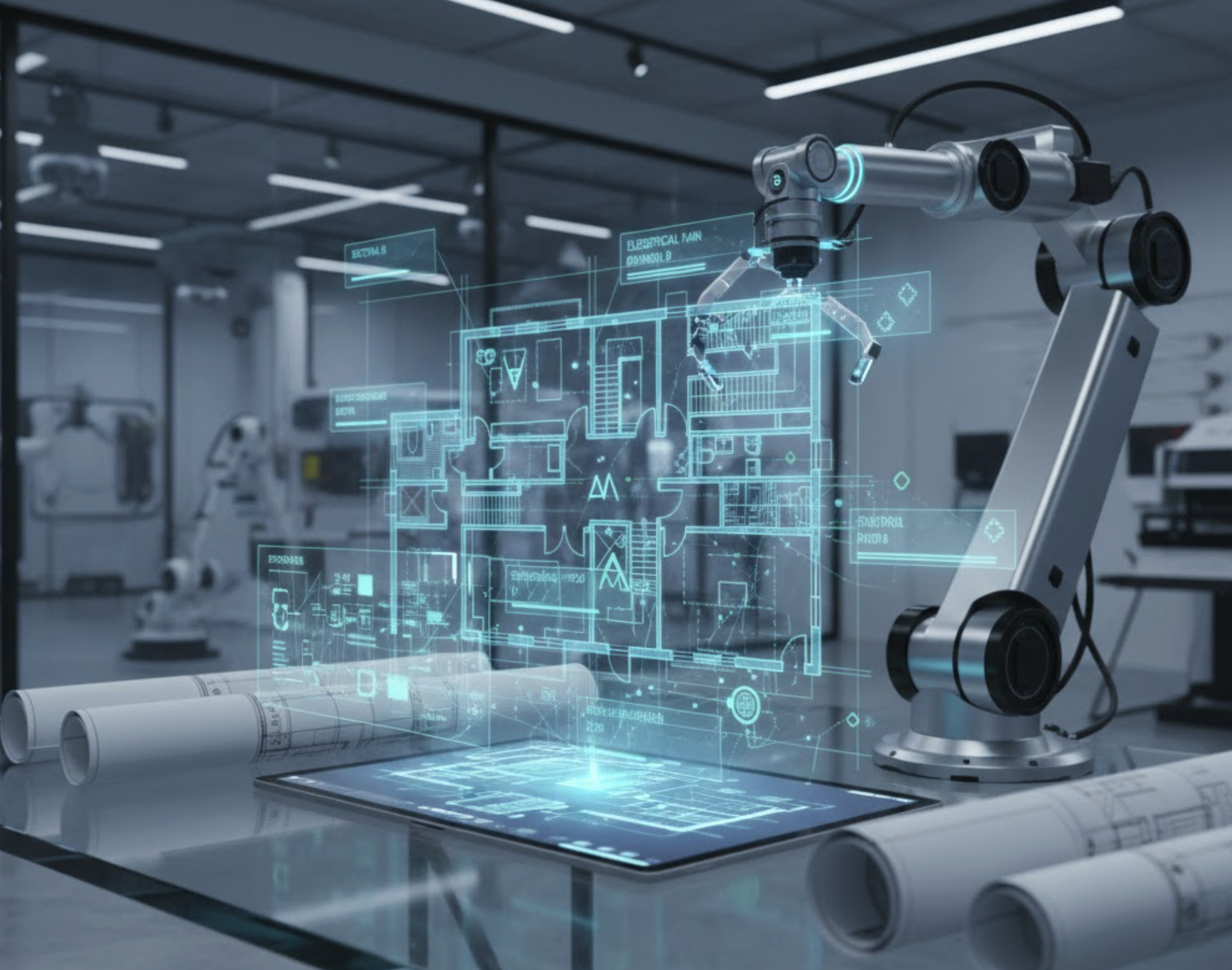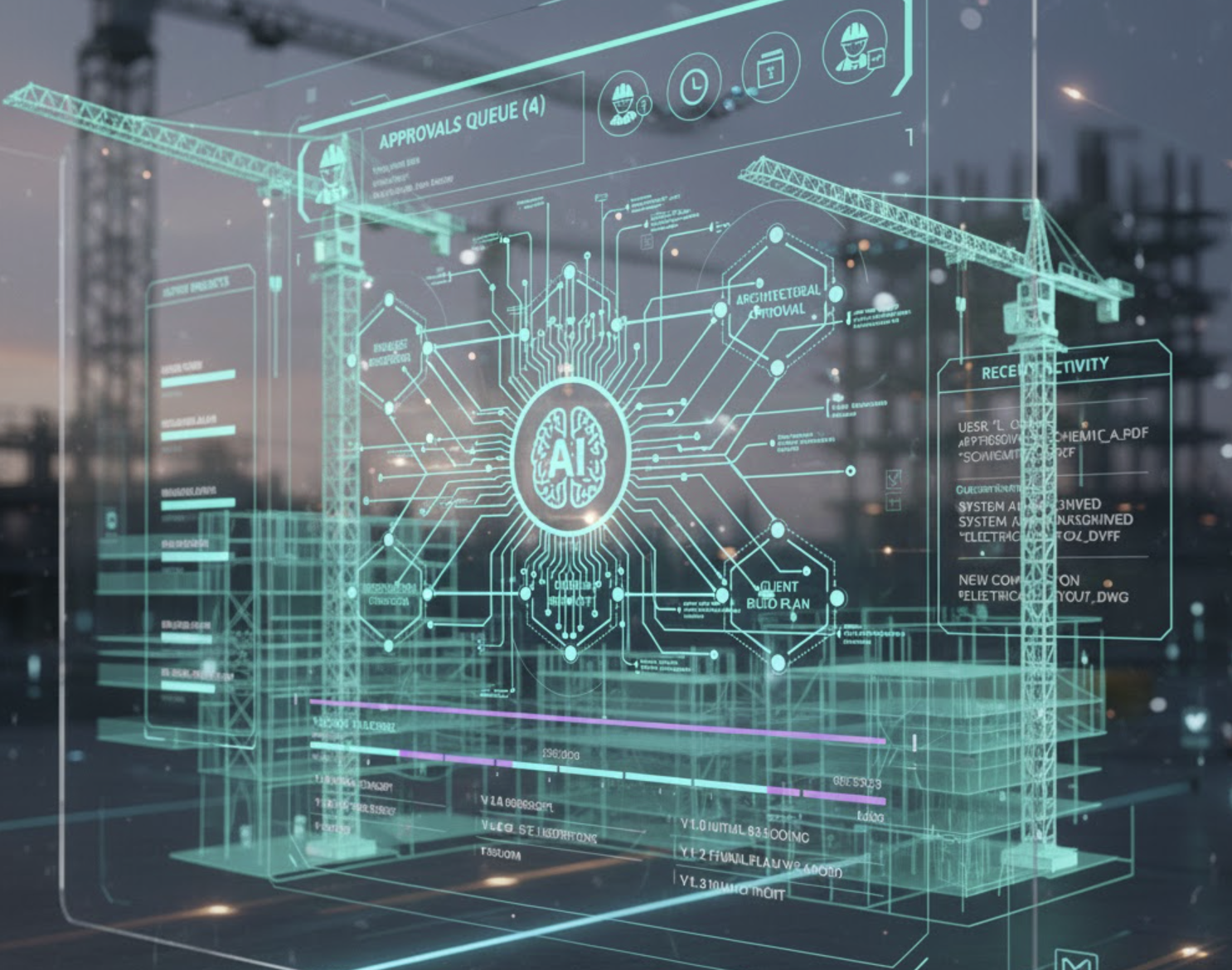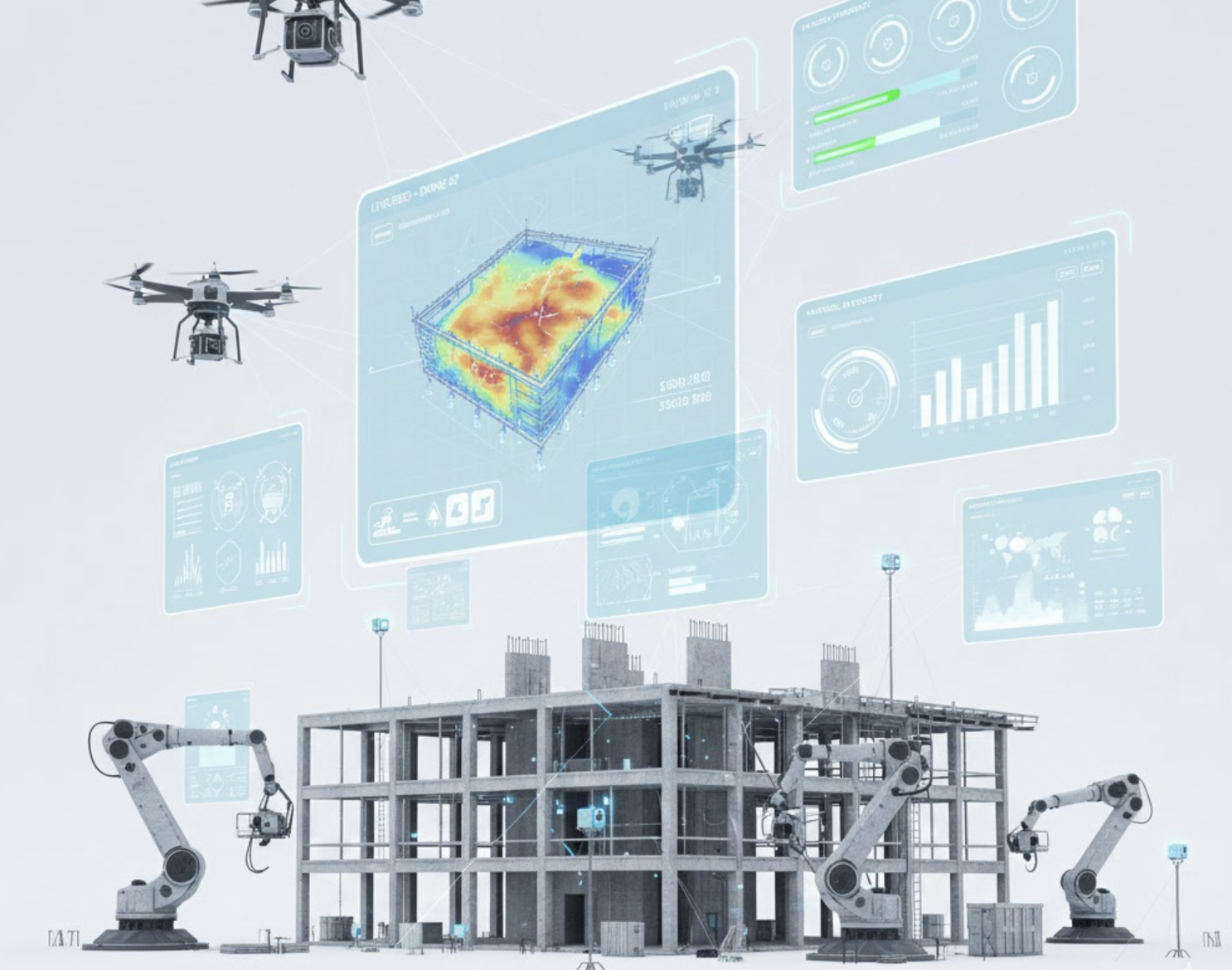AI-Driven Decision-Making: Are Construction Managers Ready?
The construction industry stands at a technological crossroads. As AI-driven decision-making rapidly becomes the new standard, construction project management software is evolving beyond simple scheduling and budgeting tools into comprehensive digital command centers. With a global market set to reach $22.68 billion by 2032, construction managers must ask: Are we ready to integrate AI at the heart of our projects? This blog explores the key benefits of AI in construction, addresses the challenges of adoption, and debunks what true readiness means. And with Zepth Core leading as an AI construction platform, there’s never been a clearer path toward an intelligent, data-driven construction future.
The Transformation: How AI Powers Smarter Construction Decisions
Today’s construction projects rely on real-time construction project data, and AI thrives on the patterns these massive data streams reveal. No longer are decisions made only through intuition or sporadic reporting; AI-powered project management harnesses predictive analytics, machine learning, computer vision, and automation to deliver actionable insights at every phase of the build.
With construction analytics and insights at their fingertips, managers transform how they approach risk, schedule, quality, and cost. AI in construction automates repetitive tasks, speeds document management, flags compliance gaps, and arms managers with forecasts and alerts that are as accurate as they are timely. These innovations define a new era—what we call construction industry digital transformation.
- Predictive Analytics: Identify schedule slip or cost overrun before it strikes, making delays and budget surprises a thing of the past.
- Automated Scheduling: Integrate weather forecasts, labor availability, and equipment output for dynamic schedules that optimize themselves as conditions change.
- AI-Powered Jobsite Management Tools: Camera feeds, drone imagery, and sensor data refocus inspections, defect resolution, and safety protocols—reducing incidents by up to 30%.
- Streamlined Document Management: AI document management software automates submittals, RFIs, daily logs, and approvals.
- Cost and Budget Control: Construction financial management tools apply live spend analysis to predict, and prevent, overruns before they take hold.
Firms already leveraging AI construction automation report project cost overruns dropping by 10–15% and delays shrinking by up to 20%. These aren’t pilot projects; they represent an industry quietly reinventing itself through construction tech innovation.
Key Use Cases: Where AI Makes the Greatest Impact
AI tools for construction are most powerful where risk, complexity, and data volume collide. Digital twins and real-time analytics model the entire lifecycle, turning vast, decentralized jobsites into manageable digital ecosystems. Let’s examine the domains where AI construction automation delivers outsized results:
Project Planning & Automated Scheduling
AI-driven construction project tracking software ingests historical and live field data to assemble man-hour estimates, resource needs, and optimal work sequences. Sequences automatically adjust as site conditions fluctuate, ensuring agile responses to supply chain swings, weather events, or labor absences.
Risk Management and Mitigation
Advances in construction risk management mean analytics hunt for hidden risk in real-time. Zepth Core’s risk register module, for example, actively pulls from jobsite reports, weather data, and safety violations, prompting mitigation plans as soon as potential exposures appear. AI risk management in construction becomes proactive—not reactive.
Resource Allocation and Labor Optimization
AI matches skills, certifications, and equipment availability with actual project needs. Workforce inefficiencies drop, and bottlenecks dissolve, as smart construction management tools automate what once took weeks to coordinate.
AI-Driven Cost Estimation and Forecasting
With construction cost control software, platforms like Zepth scan drawings, previous project data, and up-to-the-minute spend analytics, delivering more accurate bids and dynamic project budgeting tools for construction. And as issues arise, real-time alerts help teams adjust before overruns cascade.
Safety, Quality, and Compliance
On-site cameras and vision AI spot hazards and non-conformances at speed, supporting HSE compliance and reducing safety incidents. AI-powered checklists and geo-tagged audits in Zepth Core ensure compliance isn’t just monitored—it’s enforced and optimized with data-backed accountability.
AI Readiness: Overcoming the Data, Skills, and Culture Gap
The promise of AI-powered construction management is enormous, but getting there demands honest assessment and a systematic approach. The reality is, legacy systems, data silos, and ingrained work habits can stall the journey. Many construction managers aren’t yet comfortable with AI-driven dashboards or automated alerts. Here’s how leaders can close the gap and accelerate adoption:
Start with a Readiness Audit
Assess technology infrastructure, data availability, and integration touchpoints. Construction lifecycle management software like Zepth thrives when data—from BIM to daily logs—flows seamlessly.
Pilot High-Impact Use Cases
Choose domains where AI demonstrates rapid ROI: automated inspections, jobsite monitoring, or financial forecasting. Success stories build team confidence and leadership buy-in.
Integration is Key
Integrate AI solutions with construction document management tools, ERP, and scheduling software. Zepth Core, as a common data environment for construction, connects project data with workflows, analytics, and compliance tools for unified, real-time oversight.
Upskill, Upskill, Upskill
AI in construction requires new skills—data literacy, analytic reasoning, and digital fluency. Zepth’s training programs guide users so that teams not only adapt but thrive, turning AI readiness into a competitive advantage.
Emerging AI Innovations: Digital Twins, Wearables, and Beyond
The frontiers of construction tech innovation push further as AI architecture matures. Digital twins in construction bring to life virtual project models, continuously updated with live field data, creating a real-time simulation environment for decision-making and scenario planning. Managers can test out a planned change—in schedule, sequencing, or site logistics—before actual implementation, reducing costly missteps.
Wearables and on-site IoT sensors stream workforce, equipment, and environmental data back to a centralized AI construction platform. The result: predictive maintenance, hazard alerts, and orchestrated workflows that maximize both productivity and safety. Early adopters are even piloting collaborative robotics and self-optimizing project schedules, putting automation in motion on the ground—not just in the cloud.
Zepth Core: The Blueprint for AI-Driven Construction Management
AI in construction is not a distant ideal—it’s available today, and Zepth Core stands at the center of this transformation. With deep AI integration, Zepth automates core project management and risk processes, delivering actionable intelligence for smarter, safer, and more profitable builds.
End-to-End Digital Transformation
Zepth’s modules work together across the entire project lifecycle:
- Jobsite Management: AI-enhanced inspections, snag lists, and safety violation detection streamline on-site operations in real time.
- Document Management: Automated RFI management, submittals, transmittals, and approval workflows cut administrative delays while ensuring every stakeholder accesses the latest version.
- Project Financials: Construction financial tracking software and forecasting tools provide project-wide visibility, linking spend to progress for precise control.
- Risk Management: Customizable, AI-updated risk registers and mitigation plans convert old risk logging into a predictive, value-generating discipline.
- Insights & Analytics: Unified dashboards synthesize real-time data drawn from across disciplines, supporting evidence-based decisions from groundbreaking to project handover.
Beyond software, Zepth’s commitment to user training and support bridges the digital skills gap—making the transition to AI construction automation smooth and impactful. And as a cloud-based construction management solution, Zepth enables seamless integration with BIM, ERP, and on-site IoT, consolidating the data ecosystem necessary for next-gen, AI-powered orchestration.
The Verdict: Building Tomorrow’s Competitive Advantage Today
In construction, the question isn’t whether AI will transform the industry, but rather who will lead and who will lag behind. Platforms like Zepth Core, developed as smart construction management tools, are already delivering measurable improvements in cost, schedule, safety, and compliance. To be ready for the AI revolution means embracing digital transformation, continuously upskilling teams, and selecting interoperable tools that grow as the business grows.
The future belongs to those who don’t just react to project chaos—but who predict, prevent, and optimize using data and intelligence throughout the entire build. For construction managers, the time to prepare—and to thrive—is now. With Zepth Core, the blueprint for AI-driven construction management is already here. Will you be ready?




